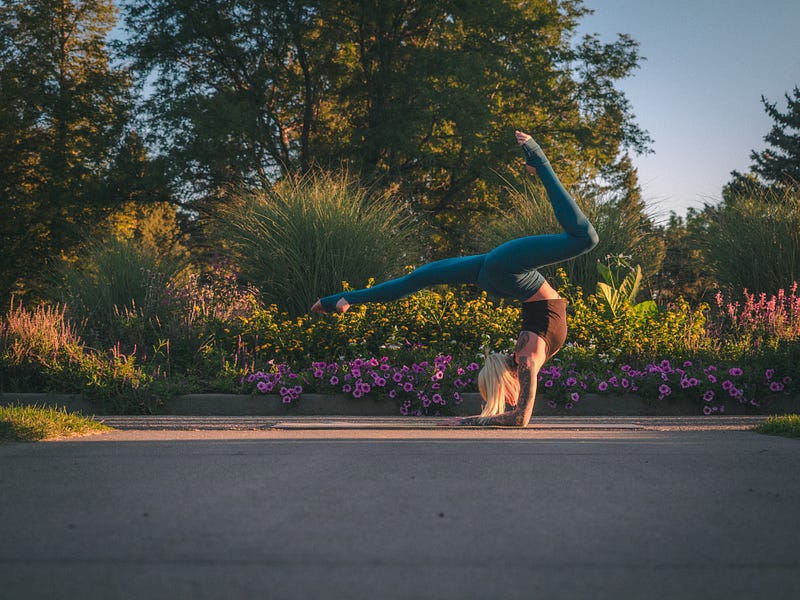Unlocking Athletic Success: The Role of Body Types in Sports
Written on
Chapter 1: The Impact of Body Types on Sports Performance
There are few books that have captivated, educated, and challenged my views as much as The Sports Gene. Epstein has fundamentally altered how we evaluate elite athletes and their accomplishments.
— Malcolm Gladwell, acclaimed author of Blink and Outliers
The author behind the concept of 10,000 hours of deliberate practice offers high praise for The Sports Gene. This unconventional work argues that our inherent physical attributes can significantly influence athletic success. This assertion undoubtedly raises eyebrows among those who advocate the importance of environment and training.
Indeed, while hard work and dedication are crucial, without talent, efforts may fall flat. Yet, it's essential to consider perspectives from both sides of the argument.
What if our physical characteristics genuinely affect success in specific sports?
The discussion surrounding nature versus nurture begins with our surroundings. The Sports Gene seeks to strike a balance between these two factors, acknowledging their combined influence on sports performance at the highest levels.
David, the author, embarks on his exploration in the renowned realm of sprinters, Jamaica.
Mr. Epstein examines why this small island nation produces an abundance of Olympic sprinters. The theory suggests that only the strongest Africans were selected as slaves; those who survived the harrowing journey to Jamaica formed a unique genetic lineage that now yields world-class athletes.
- New York Times, Talent Lies Within, But Where?
As humans, we are inherently curious about our evolutionary biology and seek explanations rooted in our ancestry for our talents and shortcomings.
My friend often claims he was "born to be a soldier." His reasoning? A childhood spent with water guns, stories from his father, a retired soldier, and a legendary ancestor from the Song Dynasty.
It's an intriguing dialogue, to say the least.
Returning to Jamaica, the allure of an evolutionary perspective is compelling but incomplete. David highlights the environmental factors that shape the daily lives of Jamaicans.
While it’s a neat narrative, it contradicts findings from DNA research by Yannis Pitsiladis at the University of Glasgow, who found no distinct genetic subgroup among Jamaican sprinters. The reality is that Jamaica produces elite sprinters largely because nearly everyone there participates in the sport.
- New York Times, Talent Lies Within, But Where?
In essence, Jamaica's success in sprinting stems from a culture where everyone races, enhancing the skills of even average sprinters.
Nurture takes the lead in this debate.
Section 1.1: The Role of Physical Attributes
A personal note: I stand at 1.75 meters and weigh around 63 kilograms. Convincing me to try out for the NBA would take a fortune.
The selection committee wouldn’t even glance at my application. Why?
Analysis of NBA data reveals that an American male aged 20 to 40 who stands at least 7 feet tall has a 17 percent chance of being in the league. This statistic illustrates the critical role height plays in basketball.
- The Sports Gene Explores The Science Of Success
Basketball players tend to be tall not because height equates to enjoyment of the sport, but because teams prioritize body types that yield competitive advantages.
At my height, a shorter NBA player could easily outmatch me on the court. Just to make a shot would require significant effort.
Chris McCormack, a two-time Ironman World Champion, often criticizes the location of championship events:
"I started training to get lean for Kona (Hawaii). My size is a disadvantage in hot conditions, so I aimed to maximize my lean body mass."
- Chris McCormack, I’m Here to Win
Body types and mass significantly influence performance.
Being lean, I worry about maintaining body temperature when running marathons in Germany and Japan, prompting me to layer up. In Singapore's humid heat, however, I can run freely and perform at my best.
Nature leads in this score.
Subsection 1.1.1: A Collection of Insights

We must acknowledge that our physical make-up, particularly our genetics, significantly impacts athletic success.
For example, I steer clear of rugby; the risk of injury is too great. Basketball isn’t my sport either.
I once abandoned skiing during my first lesson after crashing into a "Danger!" sign on the slope.
My failure to perform the emergency brake maneuver—where the big toes must touch—was the reason.
In contrast, my spouse can maintain a steady position on a steep incline, which explains her continued skiing journey while I gravitate towards marathons.
Our body structures matter significantly.
Chapter 2: Conclusion and Reflections
The video titled "Exercise Scientist Exposes V Shred's Diet And Training Claims!" explores the scientific basis behind popular training and diet claims, providing insights into how body types can influence athletic performance and success.
As a content creator, I draw insights from my daily life and experiences in business, as our unique perspectives stem from these rich life experiences.
Feel free to connect with me on LinkedIn and Twitter!